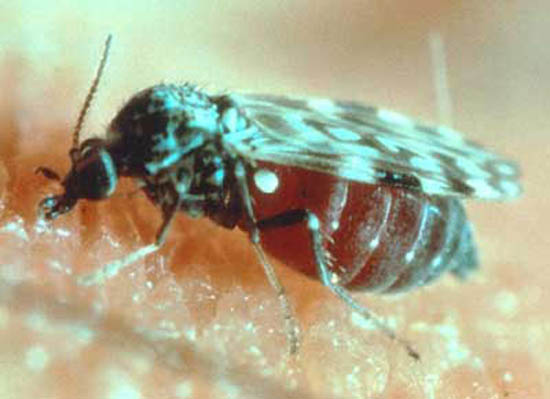SCOTLAND will be saved from a midge apocalypse by the July heatwave, according to a leading expert on the winged menace.
The damp and cold spring set up ideal conditions for a summer blizzard of midges by creating the perfect environment for the larvae buried in the ground.
But while experts recorded high numbers of “first generation” midges in June, they say temperatures in the high 20s – combined with little rain – will save the Highlands.

The “second generation” midge larvae are likely to be killed off in “significant” numbers by the dry and hot ground conditions, according to Dr Alison Blackwell.
Each summer’s midge season involves a first generation which typically emerges in June and lays the eggs that will emerge in July as the second generation.
Blackwell, of Advanced Pest Solutions explained: “It’s been a late start to the midge season because of the cold spring.
“If the weather continues to be dry like it is now then the numbers should drop off because they will struggle to breed successfully.
“We tend to see a big emergence in June, those midges have now laid their eggs and are producing offspring.
“The high temperatures dry out the soil so the eggs laid will probably not develop successfully.
“This is why the second generation will be reduced because of the dry soil and lack of births.”
One midge sampling sites recorded 159,640 insects in the first week of July – substantially up on the 111,164 recorded for the same week last year.
An increase of a third in first generation midge numbers would normally condemn Scotland to a late summer of torment.
But tests at a site in Argyll show numbers have dropped from 200,000 last week to 100,000 this week.
Dr Blackwell said: “There is a lot of midges around now because of the damp and wet spring we had but the warm weather puts them off.
“In previous years when we have had a dry summer the number of midges drops significantly.”
Ideal weather for midges is cool with spells of rain, with highs of 17C or 18C.
But temperatures in the Highlands are set to rise to at least 26C this weekend.
There are over 40 species in Scotland, the most common is the highland biting midge, or culicoides-impunctatus.
Large numbers of the ‘tiny fly’ congregrate on the West Coast, Glencoe, Argyll and the Isle of Skye.
Staff at the world-famous Three Chimneys restaurant in Portree, Skye, agree with Dr Blackwell.
Graeme Creamer, 30, Operations manager said: “We’ve not found them that bad this year, there hasn’t been a big increase in midges.
“Two years ago was the worst summer we have had, I’m not missing them.”

